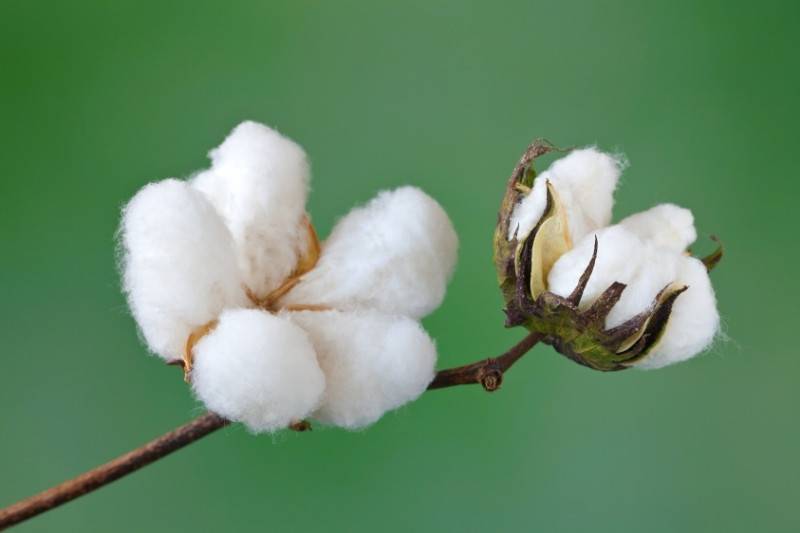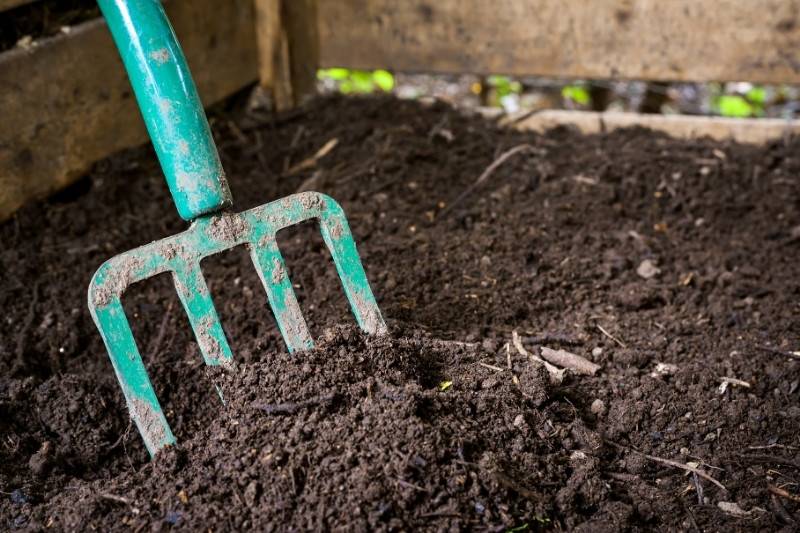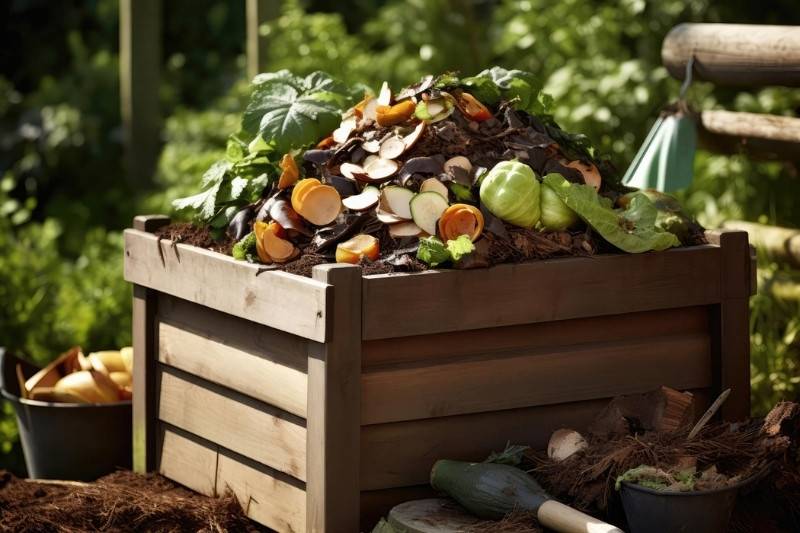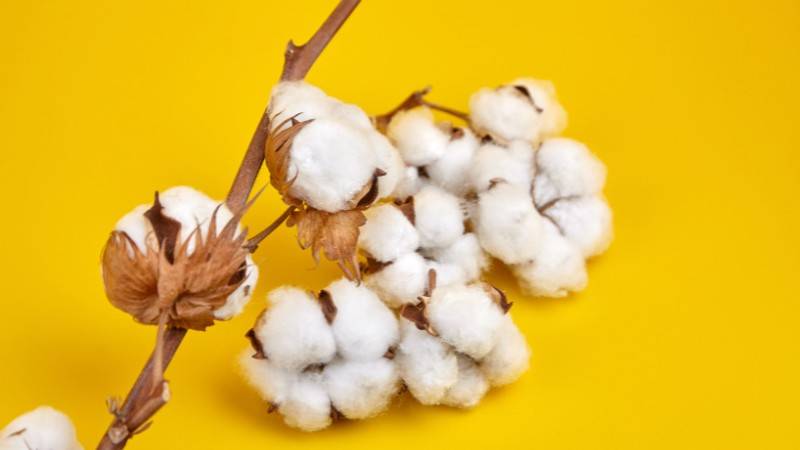Hey there, my eco-conscious friends! With our planet’s wellbeing at stake, every choice counts, right?
I recently found myself pondering — with cotton being such a massive part of our lives, how often do we stop and ask, “Is cotton biodegradable?”
Considering cotton accounts for nearly 33% of the global fiber market, understanding its environmental impact is crucial. Stick with me as we dive deep into this question and unpack what it means for our sustainable journey.
Let’s get to it!
Is Cotton Biodegradable? The Short Answer
Yes, cotton is biodegradable. But before you let out that sigh of relief, it’s crucial to understand the conditions required for this process.
Not every tossed-out cotton shirt will magically melt back into the Earth without leaving a trace. It’s a bit more nuanced than that.
Biodegradability, in a nutshell, means that a material can break down naturally with the help of microorganisms, returning to the environment as basic elements without causing harm.
The rate and nature of this process often depend on the prevailing conditions.
For cotton, the story is best told in terms of two processes: aerobic and anaerobic.
In aerobic biodegradation, the presence of oxygen allows microorganisms to decompose cotton relatively quickly. Think of a cotton T-shirt buried in your garden. Given adequate moisture, the right temperature, and an oxygen-rich environment, it will break down, turning into carbon dioxide, water, and biomass.
This is the ideal scenario for our planet.

However, if cotton finds itself in an oxygen-deprived environment, such as buried deep in a landfill, it undergoes anaerobic biodegradation. This slower process produces methane, a greenhouse gas significantly more potent than carbon dioxide.
This is not the environmentally-friendly breakdown we aim for when thinking of sustainability.
Several factors influence cotton’s biodegradability. The purity of the cotton (how free it is from synthetic blends), any chemical treatments it might’ve undergone, and the actual environment it’s left to decompose in — all play critical roles.
Factors Affecting Cotton's Biodegradability
Understanding the intricacies of the cotton industry gives us a glimpse into the pivotal role cotton plays in the fashion industry. To truly grasp its environmental impact, we need to delve into the nuances influencing how cotton biodegrades.
Natural vs. Synthetic Cotton
In the realm of the cotton industry, there’s an ongoing debate between natural and synthetic cotton. But what’s the core difference?
Natural Cotton
Directly sourced from cotton plants, organic cotton represents the epitome of natural fibers. It’s a raw material in its purest form, made of cellulose, an organic compound. Given the right conditions, organic cotton fibers break down more efficiently.
Organic cotton, in an optimal compost environment, can decompose in 1-5 months.
Synthetic Cotton
This is where the fashion industry brings innovation to the table. By blending natural cotton with synthetic fibers, such as polyester fibers, they produce synthetic fabrics that offer added durability and flexibility. However, these synthetic materials don’t share the same biodegradability as natural materials.
Synthetic fibers, especially those with polyester microfibers in landfills, might take decades if they break down at all.
Chemical Treatments and Dyes

The fashion industry doesn’t stop at just selecting cotton fibers. The treatments and dyes introduced play a pivotal role in the biodegradability journey of cotton.
Many cotton products undergo chemical treatments to meet the standards and aesthetics the fashion industry demands. However, these treatments, particularly toxic chemicals, can pose significant environmental challenges.
Some of the toxic chemicals include:
- Formaldehyde: An organic compound used to resist wrinkles. This can impede how cotton biodegrades.
- Heavy Metal Dyes: These dyes, while adding vibrancy, can introduce toxic chemicals during decomposition.
- Bleaches: These can alter cotton's inherent structure, affecting its natural decomposition process.
Environmental Conditions
Nature, with all its varying conditions, governs how cotton, whether sourced from cotton plants or blended with synthetic materials, returns to the Earth.
Environmental conditions, such as moisture and temperature, influence the decomposition pathway of both natural fibers like cotton and synthetic materials like polyester. For instance:
- Landfill: Here, the cotton, particularly synthetic fabrics with polyester microfibers, often undergoes anaerobic decomposition, producing methane.
- Compost Heap: Favoring organic cotton and other natural materials, these environments, rich in oxygen, promote aerobic decomposition, allowing cotton to return to its basic elements swiftly.
- Natural Environment: The fate of cotton here is a dance between moisture, temperature, and microbial activity. Raw materials like organic cotton fibers might break down seamlessly, while synthetic fibers could lag.
The journey of cotton, from cotton plants to the racks in the fashion industry, and eventually back to the environment, is complex. A multitude of factors, from the raw materials used to the end treatments, shape this journey, influencing how and when cotton biodegrades.

Read More:
Environmental Benefits of Cotton Decomposition
When discussing cotton’s journey, from snug T-shirts to soft bedsheets, it’s imperative to emphasize its green advantages.
Unlike polyester and other synthetic materials, which contribute to microfiber pollution and plastic pollution, cotton degrades in an environmentally friendly manner.

Let’s further explore these benefits.
Reduction in Waste
One major advantage of cotton decomposition is its notable reduction in landfill waste. Especially considering that nearly 20% of global landfill waste comes from the textile industry, with cotton products forming the biggest chunk.
Biodegradable materials like cotton, composed primarily of natural fibers found in plant cell walls, disintegrate into their basic building blocks, returning naturally to the Earth.
This is in stark contrast to synthetic materials that shed microfibers and persist in the environment.
Now, consider this perspective: cotton incorporated into the textile industry generates significant waste annually. However, unlike polyester products that add to microfiber pollution in wastewater environments, cotton products offer a greener alternative. In regions proactive with composting initiatives, waste from cotton products in landfills has decreased by up to 30%.
If every discarded cotton product were non-biodegradable, our landfills would be overwhelmed!
Soil Enrichment
A less spoken about, yet profoundly impactful benefit of cotton decomposition, is its contribution to soil health.
As cotton biodegrades, particularly the organic variety, it releases essential nutrients back into the soil. This natural process mirrors how fallen leaves decompose in a forest, enriching the ground below.

Soil, the bedrock of our food chain, benefits immensely from the organic compounds released during cotton decomposition. These compounds enhance the soil’s fertility, promoting healthier plant growth and bolstering agricultural yield.
Moreover, the decomposition process encourages microbial activity. Beneficial microorganisms, essential for soil health, thrive when they feed on decomposing organic materials, such as cotton.
Over time, a patch of soil exposed to decomposing cotton can transform into a fertile haven, capable of supporting more robust and diverse plant life.
So the next time you lay down on a cotton bedsheet or wear a cotton T-shirt, remember that once it’s lived its life with you, it can give life back to the Earth, nourishing the very soil we depend on.
How to Ensure Cotton Products Decompose Efficiently
Choosing Organic and Untreated Cotton
If there’s one thing we’ve repeatedly touched upon, it’s the superior environmental attributes of organic cotton over its synthetic or heavily treated counterparts.
Organic Cotton
Going organic isn’t just a health trend; it’s a pledge to the environment.
Organic cotton is grown without the use of pesticides, synthetic fertilizers, or GMOs, which means it lacks many of the toxic residues that can hamper decomposition.
When you choose organic cotton, you’re selecting a product that not only has a less harmful impact during its cultivation but will also return to the earth more readily.
Untreated Cotton
Cotton products that have undergone minimal chemical treatments (or none at all) have a higher chance of decomposing without releasing harmful toxins into the environment.
These untreated products might not have the glossy finish or vivid colors of their treated counterparts. But they compensate by ensuring a smaller environmental footprint in their afterlife.
In a nutshell, to make a real change, prioritize buying organic and untreated or minimally treated cotton.
Proper Disposal and Composting
It’s not just about what kind of cotton products you buy, but also how you say goodbye to them that matters. Ensuring that your cotton products decompose efficiently requires mindful disposal, and better yet, composting.
If composting isn’t an option, make sure to dispose of cotton products in places where they can access oxygen, moisture, and corresponding microorganisms. A landfill isn’t the ideal place for cotton as it might undergo anaerobic decomposition, leading to methane production.
The best way to ensure your cotton products return to nature is by composting them.

Read More:
How To Compost Cotton At Home

- Segmentation: Begin by cutting or tearing your cotton products into smaller pieces. This increases the surface area for microbial action.
- Preparation: Mix the cotton segments with green compost materials like fruit and vegetable scraps.
- Layering: Alternate layers of cotton with brown compost materials like leaves, paper, or wood chips in your compost bin.
- Maintenance: Regularly turn the compost to aerate it and speed up the decomposition process.
- Moisture and Warmth: Ensure the compost remains moist but not wet, and position the bin in a place that gets warmth, accelerating microbial activity.
- Harvest: In a few months, once the compost has turned dark and crumbly, it's ready to use in your garden.
With the right choices and mindful practices, we can ensure that the cotton products we cherish during their lifecycle leave behind only beneficial footprints in their afterlife.
Frequently Asked Questions (FAQ)
Yes, 100% cotton is biodegradable.
Cotton can decompose in a few months in ideal conditions, but it may take years in less favorable environments.
Cotton, wool, silk, linen, and hemp are all 100% biodegradable.
Yes, cotton is more biodegradable than polyester.
While cotton is biodegradable, its cultivation can be water-intensive and may involve harmful pesticides. However, organic and sustainable cotton farming methods are better for the environment.
Conclusion: The Sustainable Path Forward
Cotton’s biodegradability matters for our planet’s health. While cotton is a natural choice over synthetic alternatives, it’s essential to opt for organic, untreated versions.
From the cotton fields to our closets, the journey of this natural fiber intertwines with the health of our planet. Given the threats of overflowing landfills and microfiber pollution, embracing biodegradable options like cotton over synthetic alternatives becomes even more crucial.
Let’s prioritize informed decisions about cotton, steering towards a brighter, sustainable future.

